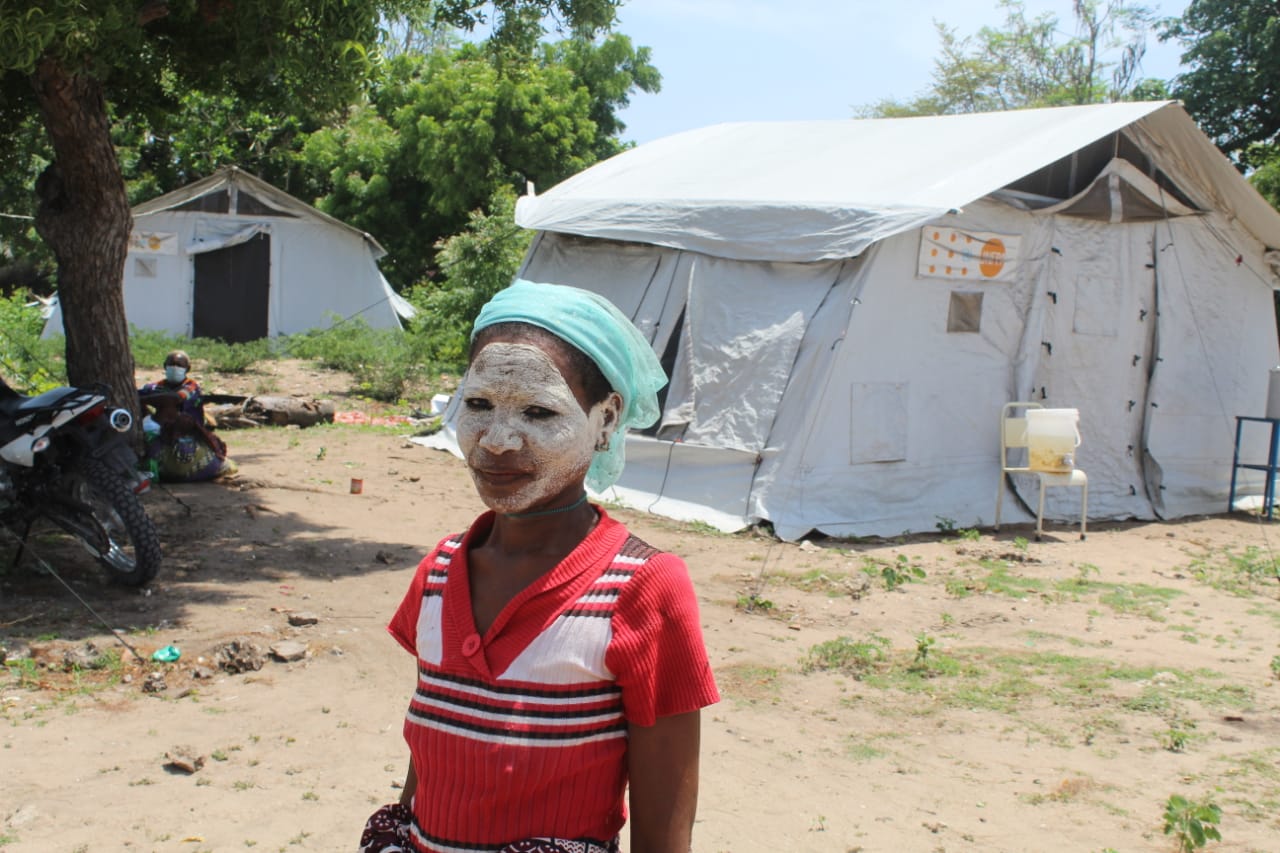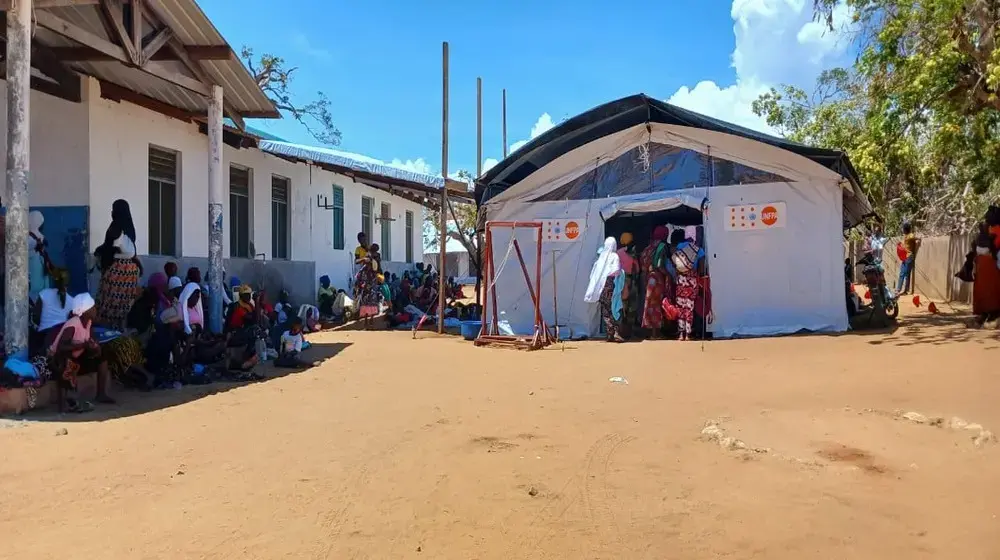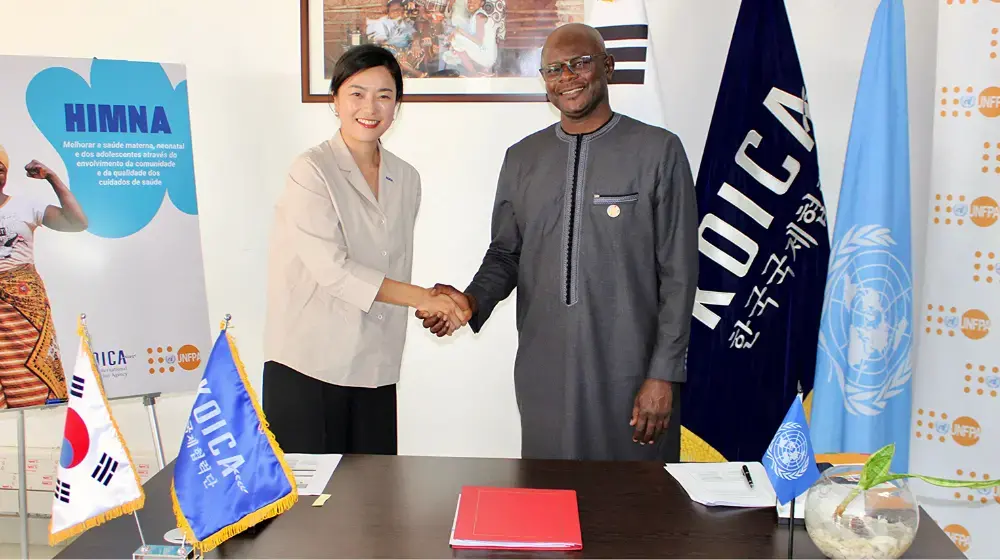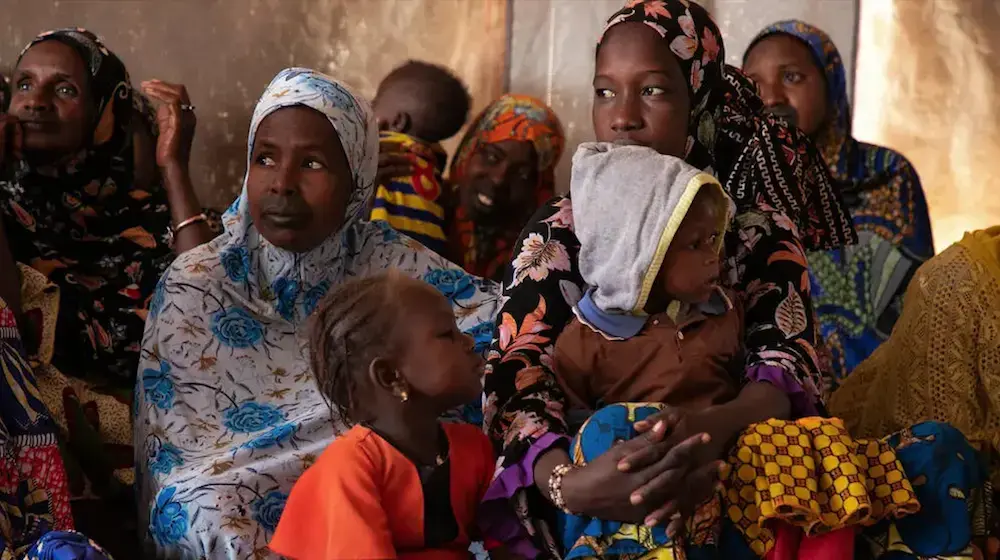Ibo Island, Mozambique - Increasing threats from the conflict in Cabo Delgado drove Jamila*, a 23-year-old mother of three, to flee her home in Macomia District and on to Ibo Island in search of safety and support. For the last two years, she has called Ibo island home - one of the Quirimbas Islands some five kilometers off the mainland.
The situation has become increasingly difficult on the island, however, with economic opportunities becoming scarce. She tried to sell peanuts, ‘but I was not earning enough to earn a living for my family,’ she recalls, while seeking family planning services at a sexual and reproductive health clinic on the island.
Jamila is one of the nearly 33,000** people that have fled to Ibo Island in search of safety. Despite being a previously secure location, however, the island now remains a near-isolated area from humanitarian assistance and with many social and institutional services limited in operation. Women and girls are amongst those paying the price of such changes.
Those living in the area continue to face challenges, including facing limited access to life-saving health services, including emergency obstetric and newborn care. Made worse, the islands have yet to fully recover from the impact of cyclone Kenneth in 2019, making them even more vulnerable to climate impacts and threats.

Given these conditions, UNFPA has supported the Government to assess the gender-based violence (GBV) and sexual and reproductive health needs of displaced women and girls and the availability of services in order to scale-up support.
In recent months, women and girls on the island have received ‘dignity kits’ to support their menstrual hygiene, sanitary, and female dignity needs - with items including reusable menstrual pads and underwear - as well as their protection and safety with whistles and flashlights to aid them at night.
Witnessing a gap in health facilities and skilled professionals to provide emergency obstetric and newborn care, mobile health clinics - with funding support from the Government of Japan - will soon be installed on the island. These clinics ‘on wheels’ - led by the provincial Government - will provide isolated communities who are otherwise cut-off from services with sexual and reproductive health support, including family planning, and GBV prevention and response care. Some 32,000 women and girls have already accessed health services through mobile clinics throughout the Cabo Delgado province this year.
Amidst a worsening situation, Cabo Delgado has been hit by a wave of attacks, driving displacement of more than 732,000 people into five provinces in the north of the country, of whom nearly 160,000 are women of reproductive age (MISP calculation). Women and girls have been among the most affected by the escalation of violence and insecurity, being at greater risk of GBV, maternal mortality and unwanted pregnancies, among other grave issues.
Through humanitarian funding support from the Governments of Austria, Japan, and Norway, as well as UN CERF and UNFPA’s emergency response fund, the Mozambique country office is currently supporting the Government to strengthen sexual and reproductive health services and protection services, including for displaced women and girls and from host communities impacted by the Cabo Delgado conflict.
As the situation worsens in Ibo island, scaling-up support for those most vulnerable remains critical. For women like Jamila, increased access to services like mobile clinics and supplies through dignity kits, strengthens her autonomy and decision-making power over her life and future - a crucial lifeline amidst a conflict.
*Name is changed to protect privacy.
** As of April 2021





